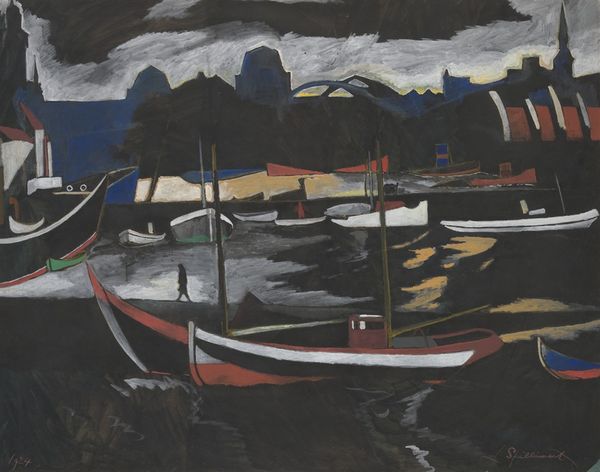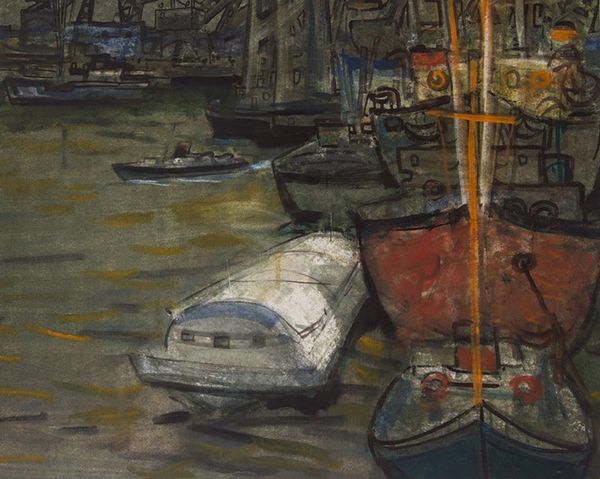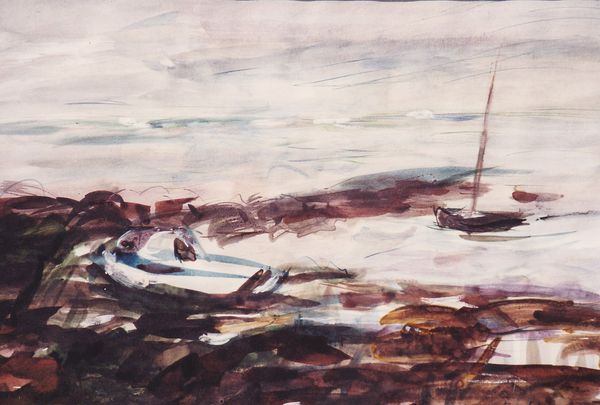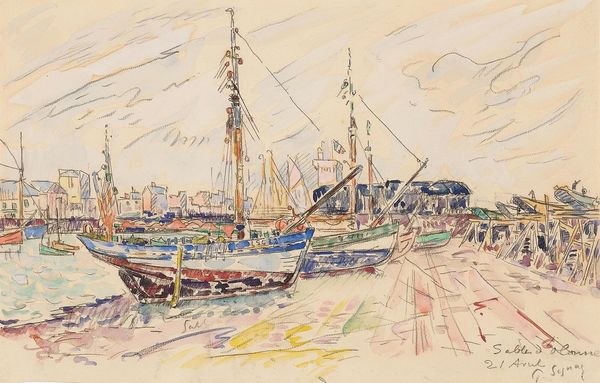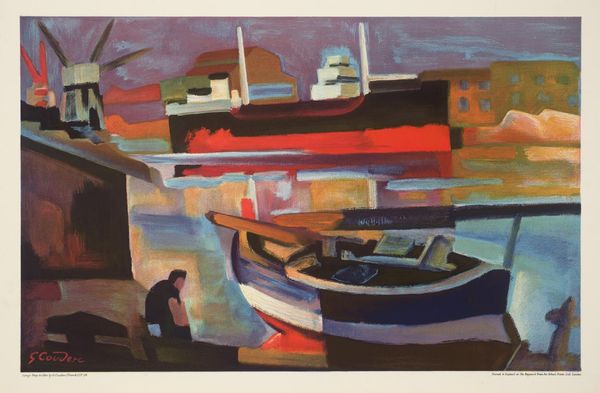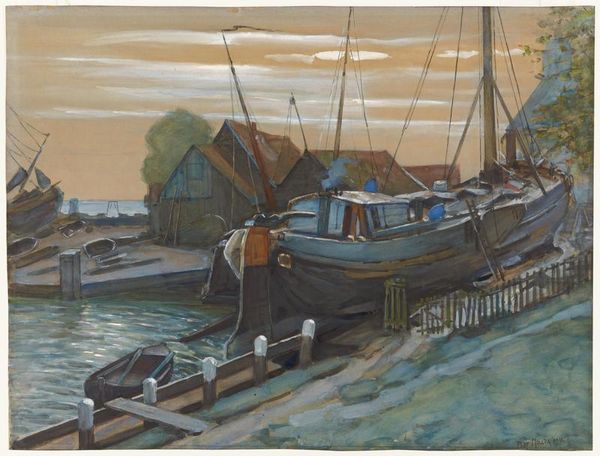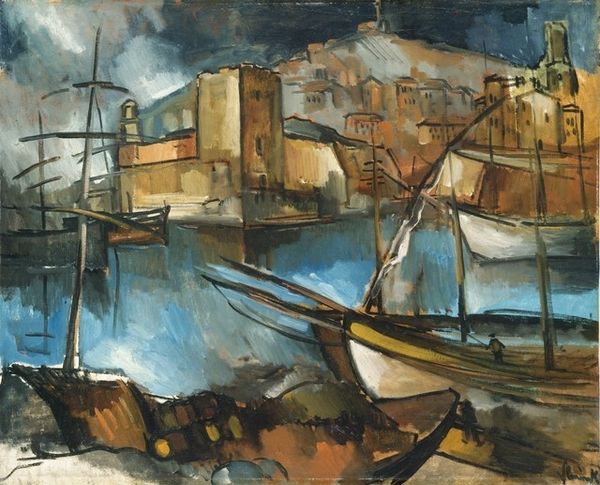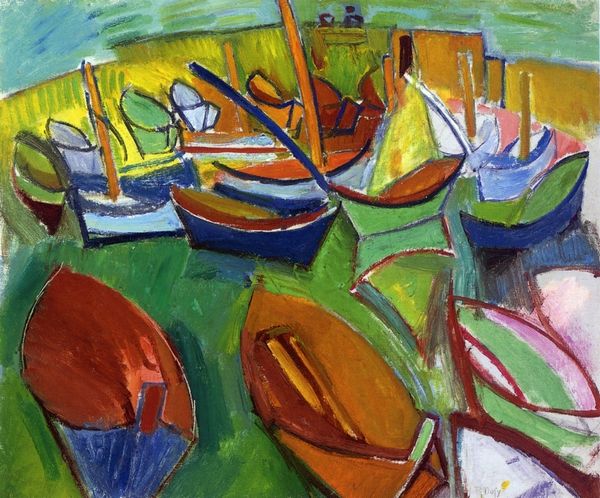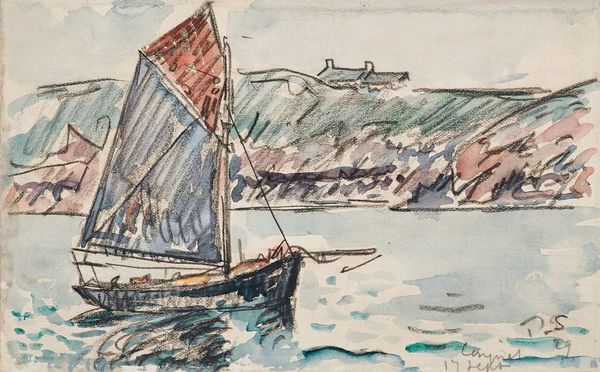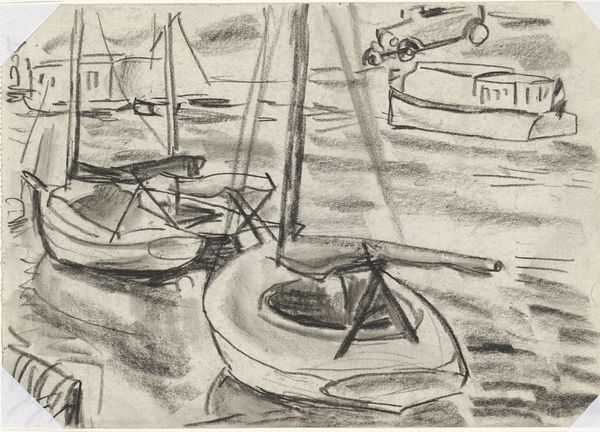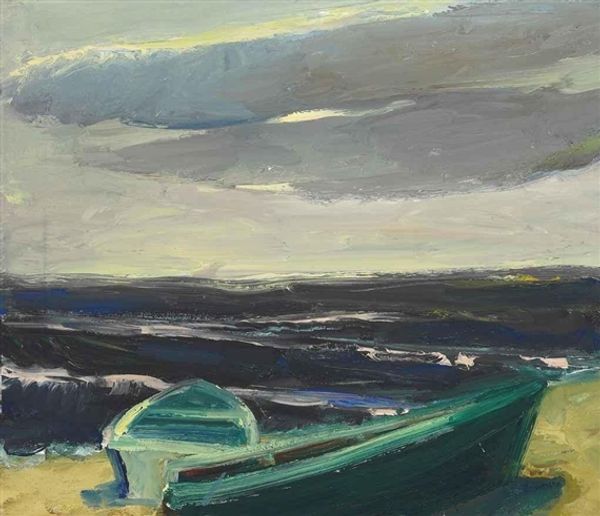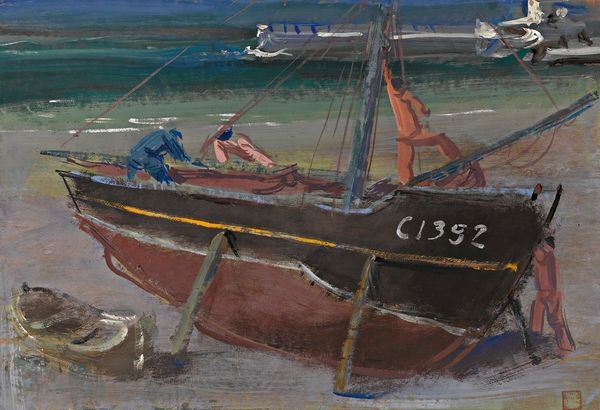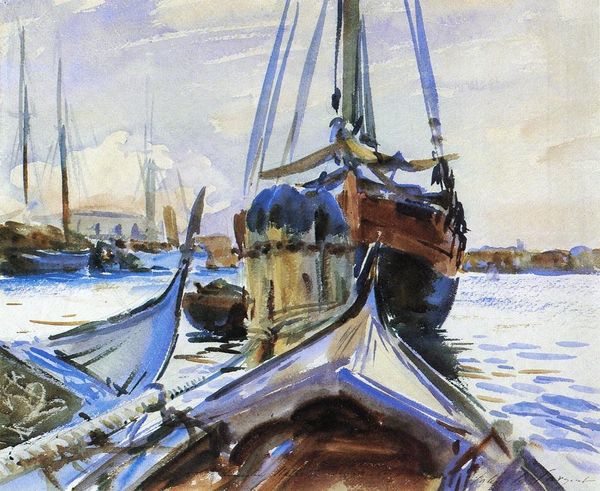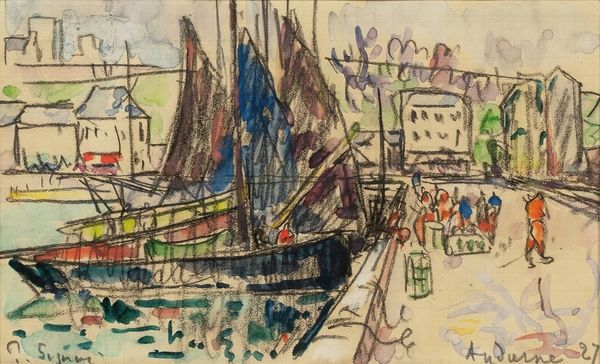
painting, acrylic-paint
#
painting
#
landscape
#
acrylic-paint
#
form
#
abstraction
#
line
#
cityscape
#
modernism
Copyright: Dimitris Mytaras,Fair Use
Curator: Before us hangs "Pireaus" by Dimitris Mytaras. Editor: Immediately, the raw energy of the piece grabs me. You can feel the acrylic applied to the surface, the bold shapes hinting at something representational but dissolving into abstraction. Curator: The painting engages with a long tradition of depicting port cities. How might we situate this particular cityscape in terms of, say, the labor and lived experience within such a locale? Editor: Precisely, it makes you consider the reality of these ships; beyond their beauty as pictorial subjects they're also instruments for trade, and connected with real dockworkers, sailors and their industries. And even more to the point; how do we produce these large containers of resources using very labor intensive processes. Curator: Considering Mytaras' other works, his stylistic choices – that interplay of line, form, and near abstraction – it's all really pushing against representational constraints while retaining the essence of the subject. I mean how is it about critiquing visibility itself? How much are port cities hidden in plain sight in conversations of our society? Editor: The choice of material matters greatly; using acrylic rather than oil signals the Modernist turn to synthetic materials; we are forced to address what impact this has for consumption, the environmental cost. Curator: True! We should look at Mytaras through the lens of queer ecology—the artwork is an expression of human-environment relations through gendered spaces and identity. How does he position himself within a larger community with shared ideas of liberation and environmental consciousness? Editor: It reminds me, ultimately, of our human tendency to tame the landscape; turn the chaos of the ocean into the grid-like geometry of shipping lanes. I like how he's acknowledging and capturing that complex transaction. Curator: Indeed. By connecting Mytaras’ representation to larger socio-political contexts and aesthetic concerns, it’s hard to ignore its capacity to comment on current social and economic landscapes. Editor: I will walk away questioning my complicity with consumerism and the globalist trade networks!
Comments
No comments
Be the first to comment and join the conversation on the ultimate creative platform.
